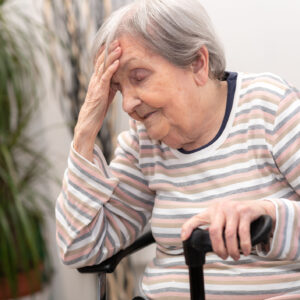Stress Happens. Here’s How to Cope
January 27, 2022 | Connectedness, Mental Health

The months of November and December can be stressful, what with holiday prep, shopping, and gatherings. But January can also be a stressful month. Many people experience a post-holiday “let down” once everything has quieted down and the long, dark days of January stretch ahead. There may be loneliness, and of course frustration with the ongoing challenges of the pandemic.
Many older people can rely on mental resilience they’ve built up over the years, but they still can be vulnerable to stress caused by loneliness and isolation. Here are a few ways to help them ease the impact of stress.
Remember that stress is a normal part of life. Stuff happens – just about any older person knows that well. Rather than thinking of setbacks as unusual events, remember that they’re just as normal as things going smoothly. People of all ages can benefit from acknowledging this simple truth.
Take care of yourself physically. For starters, get outside every day. Studies have shown that just being outside has mental health benefits. If you’re not physically active, find something that works for you. Check out the current recommendations for adult exercise. Eat healthy foods and limit your drinking.
Have regular social contact with others. Whether you prefer to meet with people virtually or safely in person, simply connecting with others will help your state of mind. Windward care managers can help find opportunities for socializing, and our home care aides provide companionship as well as transportation to activities.
Challenge yourself mentally. Hibernating on the couch certainly seems inviting in January – but it might just make you feel worse. Venture beyond reading, TV, and online games – take a class, start a new hobby, or do some volunteer work.
Ask for help. You’ve probably read about the increase in stress and depression people have experienced since the beginning of the pandemic. In fact, it’s been called a public health emergency. Seek care for a mental emergency just as you would with a physical emergency. Contact your doctor or other healthcare professional for a referral. A Windward care manager can assist you with navigating healthcare systems, or connecting with various support groups.

